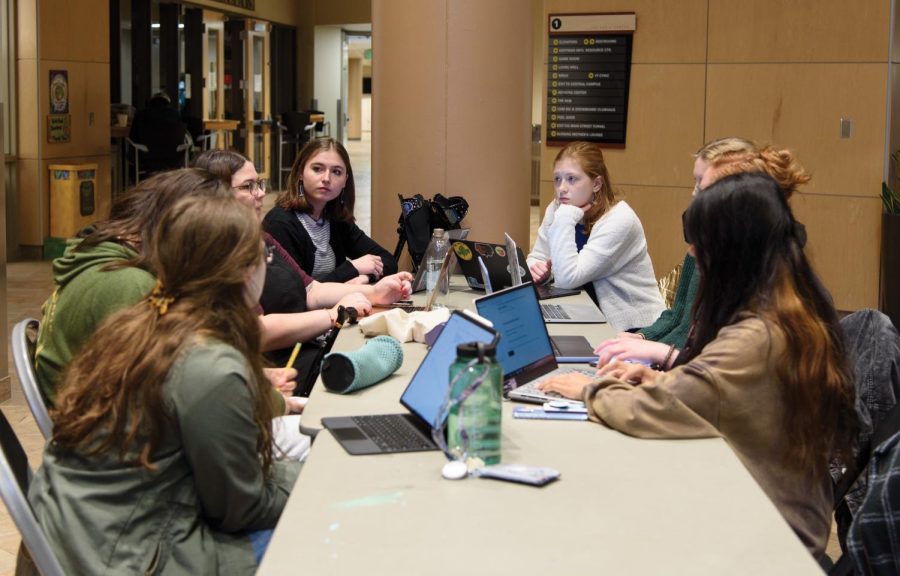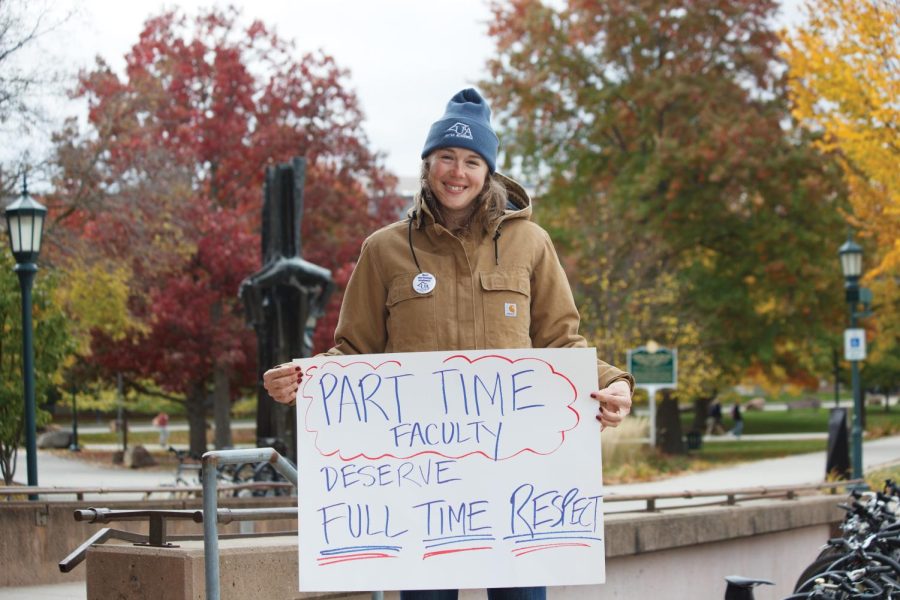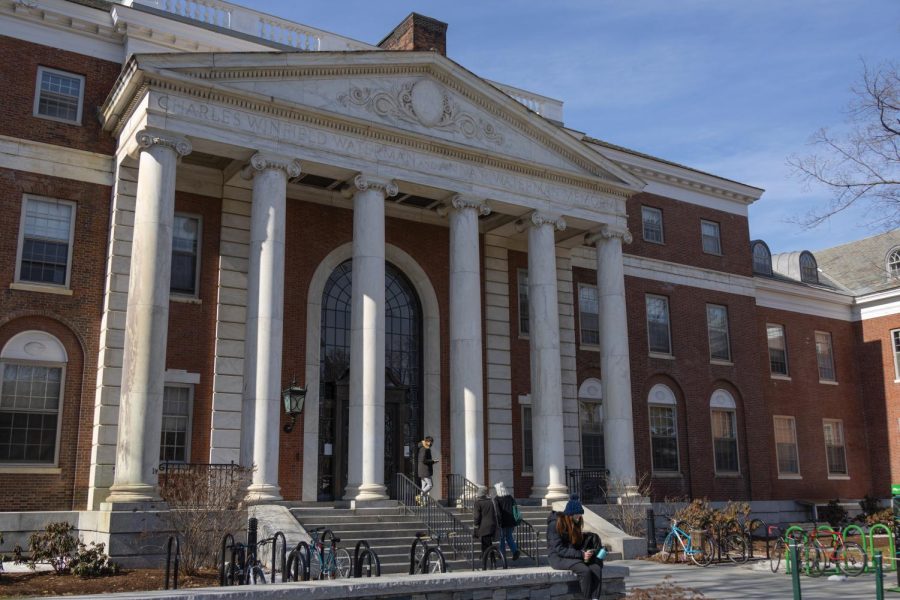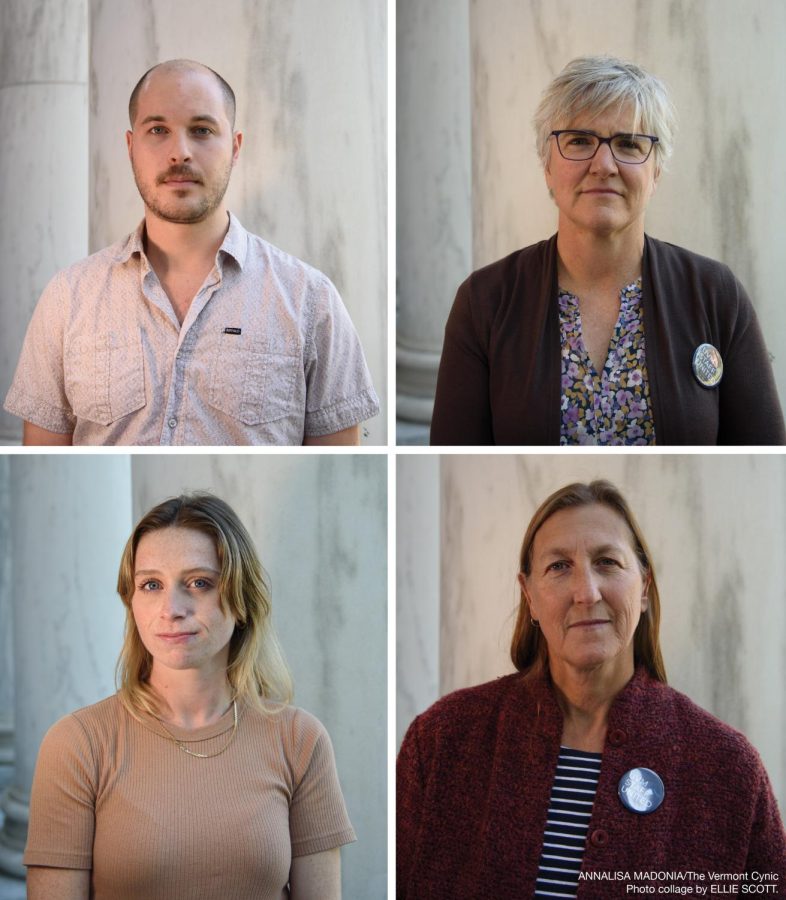Next academic year, 75 percent of first-year students will live in programmed housing.
Students have no official input as of right now, said Joe Russell, associate director of residential education for ResLife.
“There is a certain level of planning that has to happen at the administration level, and once that planning goes on, then invite student voice into this piece,” Russell said.
First-year students will have the option to apply to themed housing, programs in the Living/Learning Center or accept an invitation to a program hosted by an academic unit for the 2017-2018 academic year, according to the ResLife website.
ResLife wants to see 100 percent enrollment in these programs by 2018.
“[Students who opt for regular housing will be given] thoughtful, peer-led programming that is designed to give you a successful start at UVM,” according to the website.
As part of the changes to housing, the new first-year residence hall will be part of the Wellness Environment program, according to WE’s website.
Russell said he is not sure if the new first-year residence will be entirely part of the Wellness Environment, but there will be WE housing in the building.
WE is a residential programmed designed to provide students with an environment where healthy choices are the norm, according to its website.
“[It is] an incentive based program focused on health promotion, illness prevention and behavioral change,” the website states.
There has been discussion with leading student organizations such as SGA around the newly constructed residential hall, with 695 beds consisting entirely of WE students, SGA Vice President Tyler Davis said.
This year, approximately four percent of WE students were removed from the program for conduct violation, he said.
“I think students who are signing up for [WE] will understand what they are getting into,” said Annie Stevens, vice provost for student affairs. “Our hope is that as we continue to grow the program, students will want to grow with it.”
She said the University has not yet finalized how they will deal with the interest of incoming students in the Wellness Environment program and the number of beds available.
“We are going to figure that out when we get there,” Stevens said.
She said she is confident in the new housing program.
“Over a period of time, we are trying to transition students into broader themed housing,” Stevens said.
By putting all first-years into themed housing, those students will have improved access to faculty and resources and will be able to expand their education outside of the classroom, Stevens said.
“I think it can only have positive outcomes,” Stevens said.
Stevens reached out to SGA and several students to get input on what students thought about the program, she said.
“When I mentioned it to SGA, they said many students didn’t even know what programmed housing was,” Stevens said.
Director of Wellness Environment James Hudziak came to an SGA meeting last Tuesday to discuss the place of the Wellness Environment in the new housing system.
WE students must sign a contract which states, among other things, that if students are caught drinking or using drugs in the WE-designated residence hall, they will be removed from the program and the hall.
This year, out of approximately 120 students in the Wellness Environment, five have been kicked out of the program for violating the conduct policy, Davis said.
Davis said he raised questions on Tuesday of whether or not the program would be both restorative and community-building while also adhering to this one-strike policy.
The changes to housing are a year away and the administration is still working on plans for how the housing will work such as staffing, Russell said.
“We are headed down a path where eventually every student who lives on-campus will be associated with a theme,” he said.
The new housing model is in service of the current UVM student; they will thrive from having a sense of meaning and purpose from their homes on campus, Russell said.
“I’m not sure what future students [will think of this],” he said.
The new dorm will house 695 students, according to the project’s website.
Senior Sandy Halbing said she is doubtful every student will want to be in programmed housing.
“I think that it will hurt our current programs and the development of students who do not want to be there,” Halbing said. “It’s a great idea on paper, but I just wonder if it will lessen the value of a college experience for students who don’t want to live in programmed housing.”
She said she believes it will negatively affect students who aren’t entirely invested in the programs.
“Like, it’ll be so easy to just settle for the friends you meet in programmed housing while we’ll all be like-minded,” Halbing said. “Where’s the diversity in that?”
First-year Tim Quesnell said he is concerned about how much housing is going to WE.
“I feel that if we are building a new dorm that’s housing half the new freshman class, it shouldn’t be one living program,” Quesnell said.
Russell believes this type of housing may make a difference for students who are on the fence about coming to UVM, he said.
“This model may be more attractive to them in that it gives them a sense of meaning or sense of community right off the bat,” Russell said. “I think this model is also in service of the current UVM student who is here now and would really thrive in this kind of environment.”
Residential Adviser sophomore Ian Nathan said he believes putting WE students in the new dorm is well-intentioned.
“But grouping people together like that makes diversity seem to disappear,” Nathan said.
Sophomore Bridget McNamara said she understands why ResLife wants to make the changes.
“It’s a way for freshmen to meet people with common interests, but it seems very forced,” McNamara said. “Also, the process of moving into a random dorm freshman year is sort of a coming of age event and helps prepare people for the real world.”
The Cynic reached out to Director of Residential Life Rafael Rodriguez who expressed interest in speaking openly with the Cynic in an Oct. 27 email, but said he was not given enough time to comment for this article.
In the same email, Rodriguez stated Residential Life has been speaking to students and constituents on campus about the changes since last year, but that nothing is finalized at this time.
The Cynic also requested comment from Inter-Residential Association President sophomore Amelia Trello, who said she and other members of IRA could not comment without Rodriguez’s approval.

















